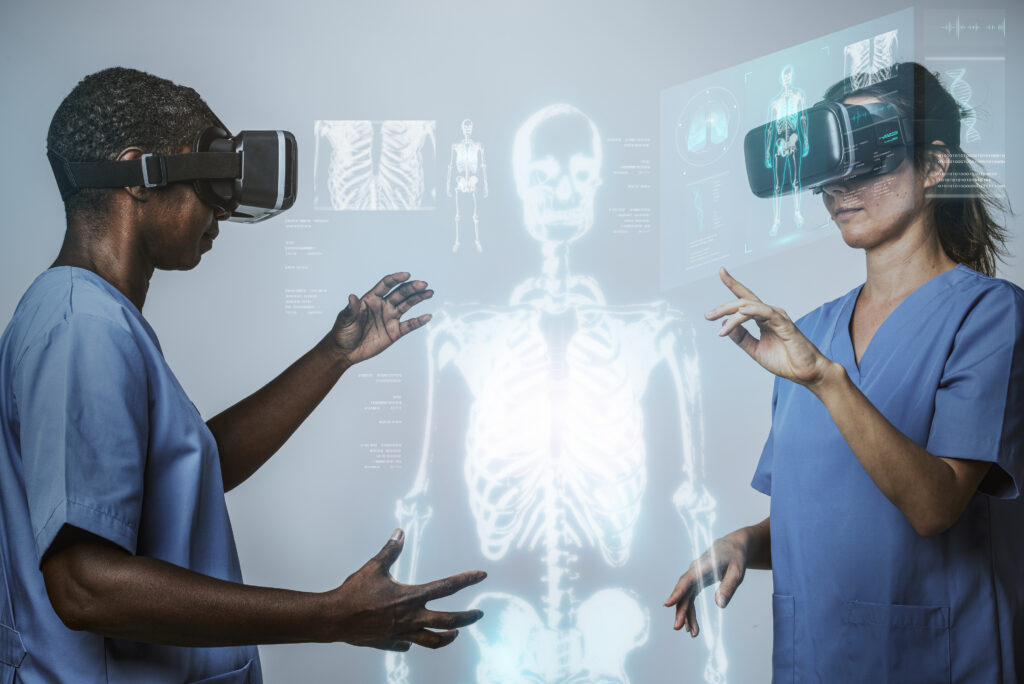
Artificial Intelligence (AI) and machine Learning (ML) have rapidly transformed medical imaging and diagnosis, offering new insights, efficiencies, and capabilities. We will delve into the role AI/ML play in healthcare generally as well as their impact on medical imaging/diagnosis; specifically we will discuss its significance with regard to diagnosis as a component of diagnosis; its implementation challenges/limitations in real world examples of AI’s effects; concluding by discussing future prospects/implications for this field.
AI and ML Have Transformed Healthcare
AI and ML have quickly emerged as powerful tools in healthcare, offering great promise to improve patient care, diagnosis and treatment. By using vast amounts of data to detect patterns, make predictions, and deliver actionable insights from medical imaging alone, these technologies could revolutionize traditional approaches to healthcare delivery. AI/ML holds particular promise when applied to enhance the accuracy, efficiency and effectiveness of diagnosis and treatment planning processes.
Medical Imaging in Diagnosis
Medical imaging plays an integral part in diagnosing and managing various medical conditions, enabling healthcare providers to visualize internal structures, identify abnormalities and guide treatment decisions. From X-rays and CT scans to MRI and ultrasound exams, imaging modalities provide invaluable data regarding organ structure, function and pathology allowing clinicians to make more informed decisions for patient care.
Artificial Intelligence in Medical Imaging
AI technologies are revolutionizing medical imaging by augmenting human expertise, improving image quality and enabling advanced analysis techniques. AI algorithms can assist radiologists with reading images, detecting abnormalities and quantifying disease severity to enhance diagnostic accuracy and efficiency; AI-powered image enhancement techniques also work to improve resolution, reduce noise and enhance contrast for clearer diagnosis images.
Benefits of Machine Learning Algorithms for Diagnosis
Machine learning algorithms offer several advantages for medical diagnosis, including:
Improved Accuracy: Machine learning algorithms can quickly process vast volumes of medical data to find subtle correlations that would otherwise escape human observers, leading to more precise and reliable diagnosis.
Faster Diagnosis: Machine learning algorithms can rapidly process medical images and clinical data, providing faster diagnosis and treatment planning in time-sensitive cases such as stroke or trauma.
Personalized Treatment: Machine learning algorithms can analyze patient data to predict individual treatment responses and create tailored plans to each individual’s specific characteristics, optimizing outcomes while minimizing side effects.
Clinical Decision Support: Machine learning algorithms offer clinicians real-time decision support by highlighting relevant clinical information, suggesting appropriate diagnostic tests, and offering treatment recommendations based on evidence-based guidelines.
Implementation Challenges and Limitations
Although AI and ML technologies can offer great potential in healthcare applications, there are still various implementation obstacles and limitations associated with their deployment, including:
Data Quality: Artificial intelligence algorithms require large, high-quality datasets for training and validation; however healthcare data often suffers from incompleteness, inconsistency and bias that hinder algorithm performance and generalization.
Interpretability: Machine learning algorithms often appear opaque, making it hard for individuals to interpret their decisions and trust the recommendations made by these programs, particularly for healthcare applications where transparency and accountability are crucial elements.
Compliance Regulation: Healthcare regulations in the US such as HIPAA set stringent data privacy, security and compliance requirements that present challenges when it comes to implementing AI/ML solutions in clinical environments.
Integration With Clinical Workflow: Integrating AI and ML algorithms into existing clinical workflows or electronic health record systems can be complex and time consuming, necessitating careful planning, stakeholder involvement, and user training to be successful.
Real-World Examples of AI Impact
There are numerous examples highlighting the transformative potential of artificial intelligence and machine learning (ML) technologies in healthcare, specifically regarding medical imaging and diagnosis:
Diabetic Retinopathy Detection: Artificial intelligence algorithms have been created to analyze retinal images and detect diabetic retinopathy, one of the leading causes of blindness, with high accuracy, enabling early intervention and protecting vision loss from occurring.
Cancer Diagnosis: Machine learning algorithms have shown great promise in improving the detection and classification of cancerous lesions on medical imaging studies such as mammograms, CT scans, and MRIs, leading to earlier diagnoses and more effective treatment plans.
Predicting Stroke Risk with AI Models: Artificial intelligence models trained on clinical and imaging data can accurately forecast the risk of stroke among high-risk individuals, enabling preventive interventions like anticoagulant therapy or lifestyle modification strategies to lower this risk.
Alzheimer’s Disease Detection: Machine learning algorithms can be used to analyze brain imaging data to detect early signs of Alzheimer’s disease and other neurodegenerative disorders, providing early diagnosis and intervention efforts that could prevent progression of disease progression.
Conclusions and Implications
AI and ML technologies are revolutionizing medical imaging and diagnosis, offering new opportunities to improve patient outcomes, enhance clinical decision-making processes, and transform healthcare delivery. Though AI/ML may pose unique challenges and limitations when applied in healthcare delivery settings, their benefits could include improving diagnostic accuracy, efficiency and personalized treatment and preventive care solutions.
Looking ahead, AI and ML in healthcare hold great promise for further advancement and innovation. Through continued research, investment, and collaboration efforts, these technologies will continue to advance, allowing healthcare providers to harness data-driven insights and predictive analytics to provide more customized, precise care plans to patients.
As AI and ML technologies become ever more integrated into clinical practice, it is vital that patient safety, privacy, and ethical concerns be prioritized. By encouraging a culture of responsible innovation and collaboration between healthcare stakeholders, AI/ML technologies can harness their full potential to address some of modern medicine’s greatest challenges, ultimately improving patient outcomes while increasing accessibility of care to all.
